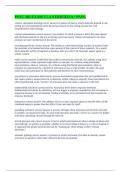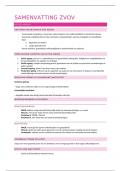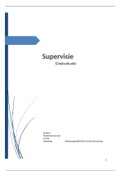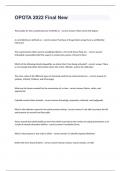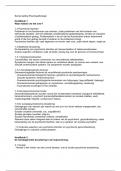Exam (elaborations)
PSYC 305 EXAM 3 || A VERIFIED A+ PASS.
- Course
- Institution
context- dependent learning correct answers A pattern of data in which materials learned in one setting are well remembered when the person returns to that setting, but are less well remembered in other settings. context reinstatement correct answers A procedure in which a person is led to the s...
[Show more]
